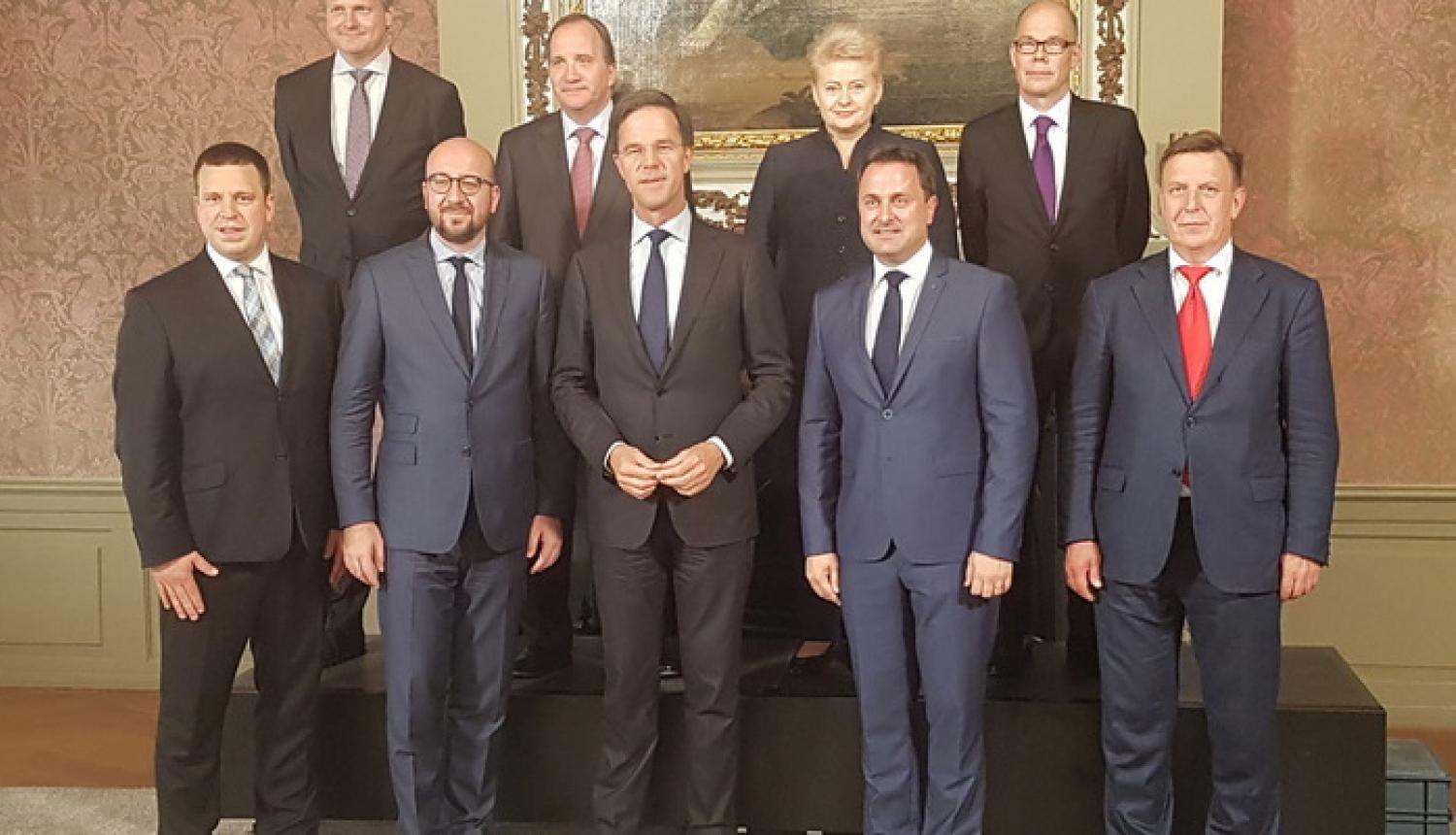In order to discuss recent developments in the European Union (EU) and opportunities for future cooperation, particularly following the withdrawal of the United Kingdom (UK) from the EU, Prime Minister Māris Kučinskis paid a visit to The Hague on Wednesday 21 June, where he met with the Heads of Government of the Netherlands, Luxembourg, Belgium, Estonia, Lithuania, Sweden, Denmark, and Finland.
The meeting was held at the initiative of the Prime Minister of the Netherlands, Mark Rutte. During the meeting, the officials discussed current issues on the EU agenda relating to the UK's withdrawal from the EU, commonly referred to as the “Brexit” process; the internal market and social dimension of the European Union; globalization; migration; the economic and monetary union; the EU's security and defence policy; and foreign policy. Particular importance was attached to further cooperation between the Benelux countries, Nordic countries and the Baltic States.
The representatives of the nine countries, meeting in The Hague, agreed that, despite some differences in opinions on various issues, they share a similar political culture with a focus on cooperation, commitment to compliance, liberal economic policies on the one hand, and support for structural reforms and fiscal discipline on the other, which will allow for an agreement on a common position when addressing the major issues within the EU. Cooperation is particularly important to balance the EU's economic policies, including the development of the internal market and foreign trade after the withdrawal of the liberal UK from the EU.
At the meeting at The Hague, M. Kučinskis welcomed the first round of the EU-UK negotiations held in a positive and constructive spirit, while pointing out that 27 EU countries need to maintain a constructive approach and unity as the process continues. As regards the future development of the EU, he emphasized that further development of the single market, where economic and social dimensions are closely linked, is important for the future of the EU. M. Kučinskis also stressed that protectionism should not be tolerated, because foreign trade is essential for the economic development of Latvia and the EU as a whole.
The Prime Minister also acknowledged that Latvia supports closer EU cooperation in the fields of security and defence, but this cooperation should complement rather than duplicate NATO. It is vital for Latvia that a mechanism is established to support small and medium-sized enterprises and to enable Latvian companies to engage in supply chains of the defence industry, including the provision of components of the defence industry such as non-military products and services.
As regards relations with Russia, M. Kučinskis pointed out that the current EU policy in this area has been correct, and there is no reason to reconsider it. "The only precondition for a review of the sanctions regime is full compliance with the Minsk agreements. This is the only internationally recognized solution. Russia's foreign policy is unlikely to change in the near future. Therefore, our approach must be pragmatic and consistent," said M. Kučinskis.
At the end of the meeting, the participants expressed their commitment to continue to hold such consultations in the future with a view to align positions before making responsible decisions at the EU level.
Andrejs Vaivars
Press Secretary to the Prime Minister
Mob.: 29228678
E-mail: Andrejs.Vaivars@mk.gov.lv



